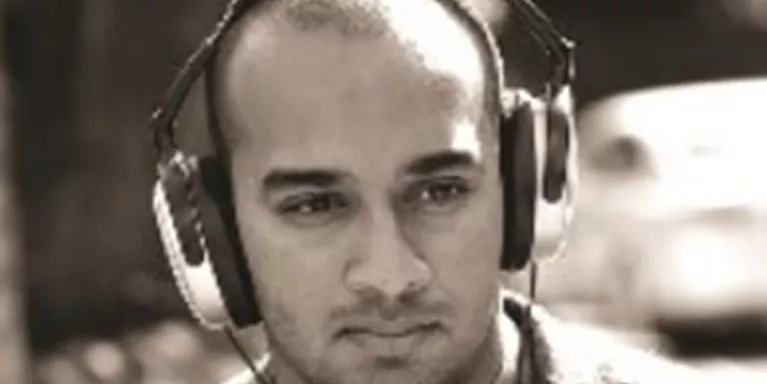Depression
Learn about depression, its symptoms and possible causes, and how you can access treatment and support. Find tips on caring for yourself, and guidance for friends and family.
Self-care for depression
Experiencing depression can be very difficult. But there are steps you can take to help yourself. This page has some ideas:
- Talk to someone you trust
- Try peer support
- Visit a recovery college
- Try mindfulness
- Take care of yourself
- Spend time in nature
- Try something new
- Do something creative
- Keep a mood diary
- Write a journal
- Make a self-care box
Some of these ideas may not feel helpful or possible right now. Try a few different things and see which works best for you.
You could also watch our animation about taking care of yourself when you experience depression - including how to look after your day-to-day needs.
Talk to someone you trust
It might feel hard to talk about how you’re feeling. But many people find that sharing their experiences can help them feel better. Having someone listen and show they care can help in itself.
You might not feel like you can open up to someone close to you. But you could call a helpline to speak to someone confidentially. For example you could call Samaritans any time on 116 123.
[What helps is] surrounding myself with friends and family who understand without pointing it out, who treat me normally but recognise that everyday life can be a struggle sometimes.
Try peer support
Peer support brings together people with shared experiences, to support each other. Many people find it helps them to share ideas about how to stay well, connect with others and feel less alone.
If you’d like to try peer support, you could:
- Contact a specialist organisation. For example, you can find details of support groups, forums and helplines on the SANE and CALM websites.
- Join Side by Side, Mind's supportive online community.
- Contact Mind's Infoline and ask about support groups near you. Or you could contact your local Mind to see if they offer peer support.
See our pages on peer support for more information.

Finding a place to fit in
I know that I fit in there. I don’t have to try and be something I’m not, I can just be me.
Visit a recovery college
Recovery colleges offer courses about mental health and recovery, in a supportive environment. The courses are often designed and delivered by people who have experienced mental health problems.
You can find local recovery colleges on the Mind Recovery Net website.
Mindfulness does help me with my mental health issues. It's not the cure and it won't work every single time, but it has helped me to alleviate anxiety and depression by centring my thoughts.
Try mindfulness
Mindfulness is a way of giving your full attention to the present moment. Some studies show that practising mindfulness can help to manage depression.
There are also some mindfulness-based therapies that can help treat mental health problems. For example, mindfulness-based cognitive therapy (MBCT) is recommended for managing depression.
See our pages on mindfulness for more information.

R.E.D January transformed the way I manage my depression
If depression is a high-pressure tank, running is the sudden switch of the pressure-release valve.
Take care of yourself
Taking time to look after yourself can help with how you feel day-to-day. This could include making sure you eat and drink regularly and take care of basic hygiene. Or trying to get enough sleep, and going outside each day for some fresh air.
If you’re struggling to give yourself this kind of care, it might help to think about how you’d look after someone you care about. For example, a pet or a friend who needs your help.
Look after your physical health
Experiencing depression can make it hard to find the energy to look after yourself. But taking steps to look after your physical health can make a difference to how you feel:
- Try to get good sleep. For many of us who experience depression, we might struggle to fall asleep. Or we may find that we sleep too much. But getting good sleep can help to improve our mood and increase our energy levels. You may find it helpful to aim to wake up and go to bed at the same time each day. See our pages on coping with sleep problems for tips to help.
- Think about your diet. Our page on food and mental health has information about how different types of food and drink may affect how you feel. And it has tips for managing your diet when you’re feeling unwell.
- Try to do some physical activity. Many of us may find exercise difficult. But even lower intensity activities can help our mood. For example, doing yoga, swimming or walking. If you don't feel confident doing exercise, you could start off with smaller activities and build from there. It may help to begin with gentle stretches or chair-based exercises. See our pages on physical activity and your mental health for more ideas.
- Try to avoid recreational drugs and alcohol. You might feel like using recreational drugs or alcohol to cope with difficult feelings about yourself. But in the long run, these might make you feel worse. And they could prevent you from dealing with underlying problems. See our pages on recreational drugs, and alcohol and mental health to find out more.
Try to care for your hygiene
It may feel difficult to look after your hygiene when you’re experiencing depression. But small things could make a big difference to how you feel. For example, this could be taking a shower, brushing your teeth and getting dressed.
If you don’t feel able to do these things, there may be ways to make them feel easier. For example, you could:
- Use mouthwash instead of brushing your teeth
- Use wet wipes and dry shampoo if you don’t feel up to having a shower
- Try putting on clean socks and underwear or changing into clean pyjamas, if getting fully dressed feels too hard
- Use a fabric spray to freshen up clothes and bedding, if you’re struggling to keep up with doing laundry
You may also find it helpful to create a hygiene kit where you can keep everything you need in one place. This might include things like a toothbrush and toothpaste, deodorant, a hairbrush or soap.
I try to keep active, even if that's just getting out of bed, washed and ready before 10am, so that the days don't become an endless blur of nothingness.
Spend time in nature
Spending time in nature can help with mental health problems like depression. If you’re struggling to leave the house and get outside, opening a window to get some fresh air and sunlight can make a difference.
See our information on nature and mental health for more tips.
Try something new
Trying something new can help boost your mood. And it can help to break unhelpful ways of thinking or behaving.
For example, this could be starting a new hobby, learning a new skill or trying new food. You could do this by joining a group, like a community project, sports team or a hobby group.
You could also give volunteering a go. This could help to improve your self-esteem and any feelings of loneliness. Your local Volunteer Centre and the charity Do-It can help you find ways to volunteer.
Try to be realistic about what’s possible and avoid putting too much pressure on yourself. Look for an activity you'll enjoy, or something you've always wanted to try. This can help with feeling motivated.

Street dancing, depression and me
What turned around my life was getting into street dancing
Do something creative
Doing something creative can help with managing depression. It doesn’t matter what activity you choose. Some ideas you could try include:
- Painting or drawing
- Colouring
- Making a collage
- Taking photos
- Singing or making music
- Dancing
- Creative writing
- Crafts, such as knitting, embroidery, or making things with clay
- Cooking or baking
Keep a mood diary
Keeping a mood diary can help you keep track of any changes in your mood. And it can help you notice if any activities, places or people make you feel better or worse.
There are many free diaries available, including from Bipolar UK and eMoods.
Write a journal
Writing in a journal can help to process your thoughts and express how you’re feeling. This could be on paper, or in a digital journal.
These are some different ideas for keeping a journal:
- Keep a ‘no filter’ journal, where you write whatever is on your mind each day with no structure or filter.
- At the end of each day, take note of a few things that went well or that you are grateful for from that day.
- Write down what has happened during the day, how you've been feeling and what sort of thoughts you’ve been having. This could help you see whether your feelings might be linked to anything you’ve been doing.
Make a self-care box
It might help to put together a box of things that can comfort you when you're struggling. For example:
- A list of your favourite books, films or music
- Helpful sayings or notes of encouragement
- Pictures or photos you find comforting
- A soft blanket or cosy slippers
- Snacks or drinks you like
- Something that has a nice smell
I've made a list of things I usually enjoy, like knitting or playing the guitar, and I try to do little bits of these activities when I'm feeling low.
Mental health apps
There are various apps available that you could use to help yourself day-to-day. But it's hard to know which ones are worth trying. Would you like some recommendations? We've put together a library of safe apps that meet our high quality standards.
This information was published in April 2023. We will revise it in 2026.
References and bibliography available on request.
If you want to reproduce this content, see our permissions and licensing page.















